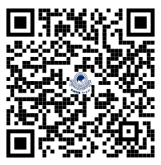Mental Health:
The mental health unit is integrated in public health facilities. However, considering the non- ambulatory cases in camp, one mental health prescriber will be stationed at Aamchowk UHC and Pathri health post. Mental health services will be provided in line with UNHCR’s 2012 operational guidance note on mental health and psychosocial support programming for refugee operations as well as WHO Mental Health Gap Action Programme (mhGAP).
AMDA will provide consultations in above mentioned health facilities, 5 days a week and will also provide the following services: (1) prescription of psychotropic drugs; (2) psychiatrist consultation once in a month at Damak and Mangalbare hospital; (3) follow-up counselling sessions by a senior health assistant; (4) home visits by community health workers (CHWs) and CPSWs in order to provide necessary follow-ups as required; and (5) referrals for patients with severe PSN/non-ambulatory mental health conditions. The psychiatric consultant will share a summary report of each consultation visit to AMDA after the completion of the visit.
To increase the absorption capacity, AMDA with coordination from UNHCR will support government health facilities to establish mental health unit in the hospital.
A separate register and individual files will be maintained in order to record patients’ details and maintain confidentiality. Information on patients referred by CPSWs and who exhibit suicidal tendencies will be compiled separately and shared on a monthly basis with UNHCR in order to monitor suicide trends and inform the Suicide prevention and Response Strategy.
Psychosocial Counseling and Prevention of Substance Abuse:
AMDA, in 2019, will conduct activities to strengthen existing psychosocial counseling and prevention of substance abuse in camps which will gradually be handed over to government health facilities. AMDA will recruit two psychosocial counsellors in Damak and Mangalbare hospital to provide psychosocial counselling and provide the data to AMDA which will later be shared with UNHCR.
Suicide Prevention Activities: In order to strengthen community-based prevention and response mechanisms, AMDA, increased the number of CHWs (1 for every 500 refugees) in 2016. AMDA will maintain the ratio of CHWs per refugee population in 2019, and mainstream mental health issues into all CHW’s activities in order to more effectively identify individuals at heightened risk of attempting suicide. Cases requiring psychosocial interventions will be identified, counselled and referred after an initial assessment is made by CPSW and PHC staff. It is hoped that CHWs’ presence in the community and strengthening the referral mechanism will result in reduced suicide attempts. In parallel, it is also hoped that increased awareness of suicide within the community will increase the likelihood that refugees will be able to identify individuals showing signs of anxiety and exhibiting suicidal tendencies.
The mental health unit is integrated in public health facilities. However, considering the non- ambulatory cases in camp, one mental health prescriber will be stationed at Aamchowk UHC and Pathri health post. Mental health services will be provided in line with UNHCR’s 2012 operational guidance note on mental health and psychosocial support programming for refugee operations as well as WHO Mental Health Gap Action Programme (mhGAP).
AMDA will provide consultations in above mentioned health facilities, 5 days a week and will also provide the following services: (1) prescription of psychotropic drugs; (2) psychiatrist consultation once in a month at Damak and Mangalbare hospital; (3) follow-up counselling sessions by a senior health assistant; (4) home visits by community health workers (CHWs) and CPSWs in order to provide necessary follow-ups as required; and (5) referrals for patients with severe PSN/non-ambulatory mental health conditions. The psychiatric consultant will share a summary report of each consultation visit to AMDA after the completion of the visit.
To increase the absorption capacity, AMDA with coordination from UNHCR will support government health facilities to establish mental health unit in the hospital.
A separate register and individual files will be maintained in order to record patients’ details and maintain confidentiality. Information on patients referred by CPSWs and who exhibit suicidal tendencies will be compiled separately and shared on a monthly basis with UNHCR in order to monitor suicide trends and inform the Suicide prevention and Response Strategy.
Psychosocial Counseling and Prevention of Substance Abuse:
AMDA, in 2019, will conduct activities to strengthen existing psychosocial counseling and prevention of substance abuse in camps which will gradually be handed over to government health facilities. AMDA will recruit two psychosocial counsellors in Damak and Mangalbare hospital to provide psychosocial counselling and provide the data to AMDA which will later be shared with UNHCR.
Suicide Prevention Activities: In order to strengthen community-based prevention and response mechanisms, AMDA, increased the number of CHWs (1 for every 500 refugees) in 2016. AMDA will maintain the ratio of CHWs per refugee population in 2019, and mainstream mental health issues into all CHW’s activities in order to more effectively identify individuals at heightened risk of attempting suicide. Cases requiring psychosocial interventions will be identified, counselled and referred after an initial assessment is made by CPSW and PHC staff. It is hoped that CHWs’ presence in the community and strengthening the referral mechanism will result in reduced suicide attempts. In parallel, it is also hoped that increased awareness of suicide within the community will increase the likelihood that refugees will be able to identify individuals showing signs of anxiety and exhibiting suicidal tendencies.


